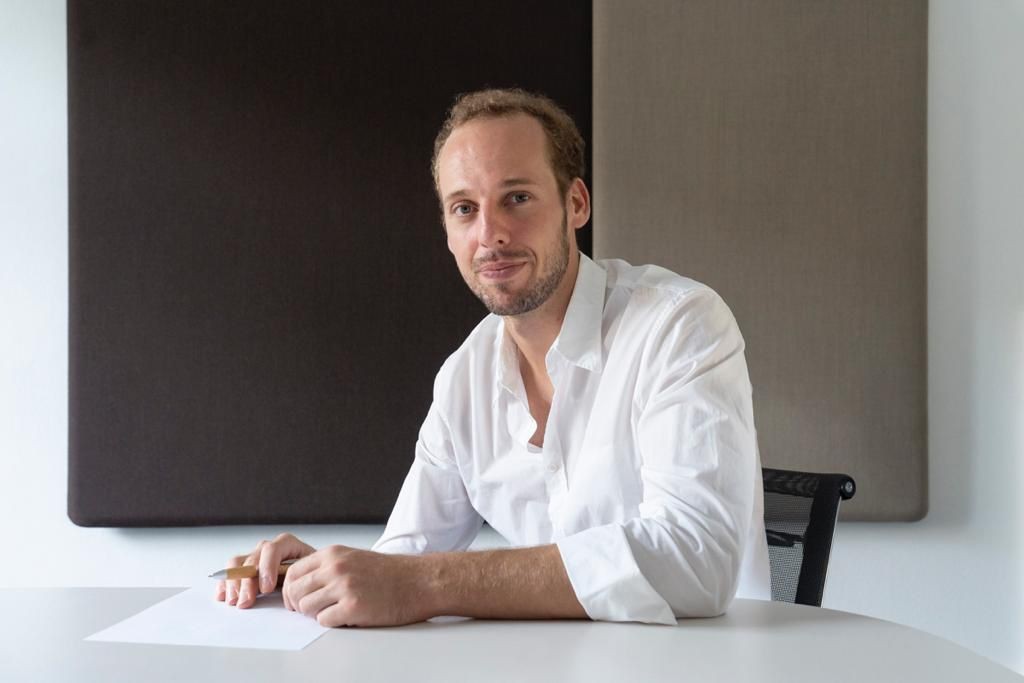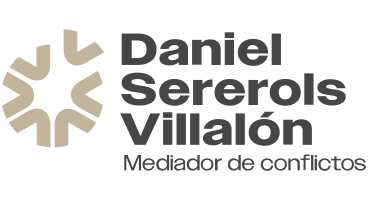
27 Sep Interview with Adrián Arroyo Díaz-Morera
Interview with Adrián Arroyo Díaz-Morera, mediator, colleague at Logos Media and friend
Dear Adrián, how did you come to the world of mediation?
Through my parents: my father is a lawyer, and I remember talking about mediation on the way to school when he was attending one of the first editions of the Mediation Master’s at the UAB. Years later, after an intervention in a conflict at home, my mother told me that I had good skills for mediation. It coincided with the fact that I had just finished my degree, and I thought about doing the specialization master’s.
What interests or attracts you most about conflicts?
I am intrigued by the ability to put words to the reasons and needs that drive us to act, and the dignity of listening to them. In the West, not long ago, we managed to establish social agreements to transform physical violence (residual) into economic, relational, legal, ideological disagreements, etc. These forms of disagreement are better than violence, but they bring about problems that require solutions. The possibility of reaching agreements without the intervention of an authoritative figure is the necessary effort to strengthen these social agreements and their limits. Conflict is a crisis (etymologically, an opportunity) that calls for understanding the interests and needs of the other better than we have done so far.
What do you think is the key to good mediation?
Communicating information, working on perceptions, accepting one’s share of responsibility, and designing a good process.
How do you work with people who arrive very closed off, angry, or hurt?
In the initial session, I try to make them see that everything they bring with them cannot change, and therefore, the best way to take responsibility is not to disengage from the problem. Mediation allows us to move from a conflict to a problem that requires our involvement to be resolved.
Is there any case that has particularly marked you, more for the process than for the result?
Yes, the process, as I said, is very important. In a case of division of family assets, I learned that it is crucial to work on the expectations of the parties at the beginning of the mediation.
What is the difference between managing and transforming a conflict?
Every conflict can be managed, but for it to be transformed, the parties also need to transform themselves. Walk the walk, as the Americans say.
Do you think mediation is sufficiently recognized and understood socially?
No. Society, in general, due to lack of knowledge, confuses the everyday use of the word “mediate” with the mediation process. Mediation is not just any attempt, a kind act and nothing more. Mediation is a concrete process with a clear intention.
How do you explain to someone who has never heard of it what mediation is?
Mediation is an extrajudicial process facilitated by a professional, with the aim that the parties involved, with legal advice, agree on a solution.
What does your collaboration with Logos Media involve?
I am a recent collaborator, and we are working on projects to raise awareness and promote the use of mediation.
In what type of conflicts do you feel most comfortable intervening?
In those where the parties know that mediation is an opportunity and not an obligation or a formality.
Is there any area that particularly interests you: family, communities, organizations…?
Mediation to resolve commercial/business disputes. In other jurisdictions, it is common for law firms to use mediation to avoid lengthy and costly judicial proceedings. I believe that, well recommended by their lawyers, it can be very beneficial for entrepreneurs in Spain.
Have you ever had to manage a mediation that really tested you as a professional?
Yes. Mediation has a very particular aspect: the mediator has two or more clients and cannot side with any of them. This is naturally difficult for the parties to understand. In addition, to do the work well, uncomfortable questions have to be asked, and that is also a challenge.
What place does listening occupy in your style of mediation?
It occupies the central place. Everything is structured from listening. Attention is a moral act that is becoming endangered.
Who are your references or inspirations in this field?
Marshall Rosenberg, American psychologist and father of Nonviolent Communication; Nora Bateson, developer and facilitator of Warm Data spaces; and Rabih S. Safir, Lebanese mediator.
Do you have any personal routine to take care of yourself after intense processes?
Exercising and writing.
What would you say to someone who thinks that “to mediate is to give in”?
That they are right. And then I would ask what they mean by “give in”; surely, by exploring this question, limiting beliefs would emerge, associated with a negative perception of the word and resistances to change.
What training has most impacted you in your path as a mediator?
That of CEDR (Center for Effective Dispute Resolution) and a session of the continuous training offered by the CMC, led by Jordi Palou, on violence and Aikido in the context of mediation.
Where do you think mediation should go in the coming years?
Towards complementing a more dynamic dispute resolution system that is less dependent on the courts. That is why I think we need to work with law firms. Mediators need lawyers to carry out effective mediations.
How can artificial intelligence and mediation coexist in a more human justice system?
I don’t know. The aspiration of AI developers is not coexistence; they want to have things under their AI’s control, which is the opposite of coexistence. If justice systems aspire to control everything, they will become dehumanized and authoritarian. To get an idea, I recommend reading The Eyes of the Eternal Brother by Stefan Zweig.
What risks do you see in delegating to AI the emotional aspects inherent to mediation?
That it is a deception, an illusion of progressivism. AI may understand, but it cannot support a person in an emotional moment; it cannot do what the English psychologist Donald Winnicott called holding.
If you could make a public call, what would it be?
That people be more careful and intentional in how they observe the world, and how they represent it with words, silences, and ideas. That is where many conflicts come from.
Barcelona, September 13, 2025
Adrián Arroyo Díaz-Morera — Mediación
